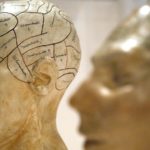QUARTZ
This new DNA test could help people beat depression faster

For people who suffer from depression, treatment is often a game of chance. Thirty to forty percent of people don’t respond well to the first anti-depressant they’re prescribed. So they try another. And then possibly another. It can take months or even years to nail down a medication that relieves symptoms without leaving behind a haze of unpleasant side effects.
But there may be a way for doctors and patients to stop rolling the dice. Companies including Assurex, Genelex, and Genomind have rolled out genetic tests that use a single cheek swab to gather a patient’s DNA, with the goal of revealing how individual patients are likely to respond to medications used to treat conditions like depression, anxiety, and schizophrenia. The goal is to get patients on the path to recovery sooner, saving them time, money and considerable emotional pain and struggle in the process.
The tests determine which FDA-approved drugs would work well with each patient by taking a look at their genes. Each person metabolizes medications differently, depending on their enzymes and receptors. For example, a patient with low levels of the CYP2D6 enzyme, which is responsible for metabolizing many anti-depressants, would be more likely to have the medication build up in their bloodstream–potentially causing side effects or adverse reactions.
Clinicians are already administering the tests across the country. Heather Lin, a psychiatrist based in Calabasas, California, tells Quartz that she has used Assurex’s GeneSight and Genomind’s Genecept tests for the last eight months on around 70 patients. She says she particularly likes GeneSight because the results are easy to read. The tests use color-coding to categorize how well a patient can tolerate medications: green means “use as directed”, yellow means “use with caution,” and red means “use with caution and with more frequent monitoring.”
Lin says patients have been satisfied with the tests so far, and that she appreciates the opportunity to decrease trial and error and follow-up appointments. She also says the tests can fill a void if patients have an incomplete medical history.
“Family history can be helpful in determining the likelihood of a patient’s response to certain medications,” Lin tells Quartz. “But if family members haven’t shared their mental health history due to stigma, or [if] someone is adopted and doesn’t have access to their biological parents’ data, it can be a challenge.”
Patients who used genetic tests experienced 70% improvement in depressive symptoms. Clinical studies of GeneSight have found that patients who used the tests experienced 70% improvement in depressive symptoms. Patients who used the tests also saved over $5,000 in health care costs per person each year, according to a separate study. That’s a welcome statistic, considering that depression is a notoriously expensive disease, costing society $210 billion per year, according to new data published in the Journal of Clinical Psychiatry.
However, while the clinical data on the tests is good so far, questions remain about their efficacy.
“Current studies are mostly based on how drugs are distributed and metabolized in the body, and the evidence there is strong,” Vicki Ellingrod, director of the clinical pharmacogenomics laboratory at the University of Michigan, tells Quartz. “But we need more studies on how the drug affects the body, which requires much larger sample sizes and many, many more studies.”
Do antidepressants numb us to anxiety, or do they actually make us happier? Scientists are still trying to understand how exactly antidepressants affect neurotransmitters and what happens in our brains when the two cross paths. Do antidepressants numb us to anxiety, for example, or do they actually make us happier? Given these ambiguities, it’s too early to say whether the tests can measure which drug works better on a biochemical and physiological level. In the meantime, however, Ellingrod says she believes the tests should remain available.
Some experts also point out that genetics are only one factor in causing depression and other mental health conditions, which could limit the tests’ usefulness.
“Measuring the impact of a drug on depression is more complicated and subjective than measuring the effect of chemotherapy on a tumor or seeing whether a rash clears up,” Lisa Parker, a genetic bioethicist at the University of Pittsburgh, tells Quartz.
“If I get laid off, I may feel hopeless,” Parker tells Quartz. “If I get the flu, I may feel dragged down. Those mood changes may have virtually nothing to do with my depression, my medication, or my genes.”
Nonetheless, many in the mental health community are eager to explore genetic testing’s potential.
“Even if a medication, say Prozac, shows up green, it doesn’t mean it is perfect.” The American Psychiatric Association (APA) is “currently in the midst of reviewing the genetics literature, which involves claims of efficacy for tests,” says Charles Nemeroff, chair of the APA’s task force for novel biomarkers and treatments. “We hope to present findings next year.”
Meanwhile, Elligrod is in the process of conducting studies that will help determine the best time to offer genetic tests: at the beginning of treatment, or after the patient has tried out a couple options.
That information could be helpful for clinicians like Lin. While she’s enthusiastic about the tests, she’s also quick to point out their limitations.
“They are not the holy grail,” she tells Quartz. “You don’t want to miss the clinical picture, and you don’t want to treat the patient just using the report. Even if a medication, say Prozac, shows up green, it doesn’t mean it is perfect.”
Nonetheless, Lin is excited about the possibilities of genetic testing. “It’s kind of like finding the needle in the haystack,” Lin says. “You won’t find the needle, but you can clear away some of the hay.”
Click here to read this article on the Quartz website.
